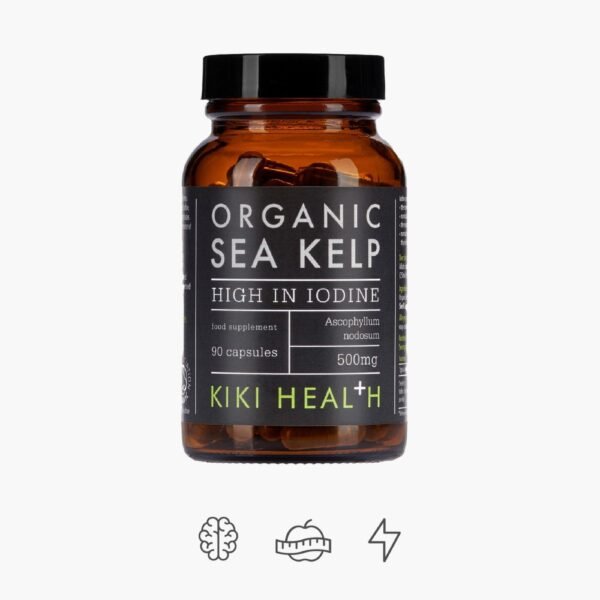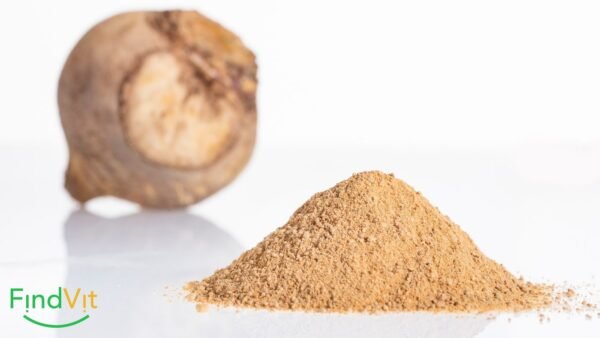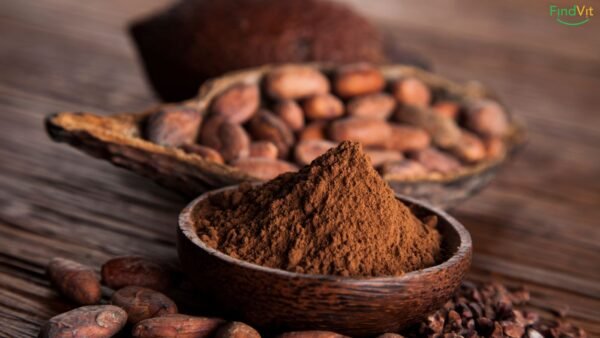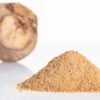Iodine is a trace element that the body needs to function properly. It is important for many body processes, including growth, reproduction, energy production, and the nervous system. Although the amount of iodine in the body is very small, its importance for health is enormous.
Iodine deficiency is a very common phenomenon in the world. According to the World Health Organization (WHO), iodine deficiency is one of the main causes of intellectual disabilities worldwide. In addition, iodine deficiency can lead to a variety of health problems, including thyroid dysfunction, developmental disorders, and other diseases.
In this article, we will discuss the role of iodine in the body, its food sources, the importance of iodine for thyroid function and mental development, the symptoms and diseases of iodine deficiency, and strategies to prevent iodine deficiency. Finally, we will provide frequently asked questions about iodine and provide recommendations.
The role of iodine in the body
Iodine is important for the synthesis of the thyroid hormones thyroxine (T4) and triiodothyronine (T3). These hormones are necessary for normal body growth, development, energy production and metabolism. In addition, they help the body maintain a normal body temperature, regulate the activity of the nervous system, promote fat oxidation and protein synthesis.
Iodine is also important for normal mental development. Iodine deficiency in infancy and early childhood can lead to forms of intellectual disability that are underdeveloped. In addition, iodine deficiency during pregnancy can have a negative effect on the fetus and cause congenital anomalies.
Finally, iodine is involved in other body processes, such as supporting the immune system and normal skin function. Thus, the role of iodine in the body is very important, and it is necessary to ensure its sufficient intake.

Sources of iodine in foods
Iodine is found in various foods, but its amount varies depending on the origin of the products, soil content and other factors. The best sources of iodine are seafood, including marine fish, seaweed, shrimp, crab, and squid. In addition, iodine can be found in milk and milk products, eggs, meat and poultry.
Vegetarians and vegans can find sources of iodine in vegetables, fruits, and grains, but the iodine content of these foods can be lower and more variable. Adequate iodine intake for vegetarians and vegans can be achieved by taking iodine supplements or using iodized salt.
Iodine is also found in water, but the amount varies by geographic area and water source. Iodine levels in drinking water may be higher in coastal regions with more iodine-rich soils.
Interesting facts about iodine
Iodine is the first element that was discovered for its biological importance. It was discovered in 1811. by the French chemist Bernard Courtois, who worked with seaweed ash. The discovery of iodine was an important step in science because it helped to understand the structure and function of thyroid hormones.1
Iodine is one of the rare elements that is essential for life. It is important not only for humans, but also for other forms of life, including plants, animals and bacteria. Iodine deficiency can cause a variety of health problems, including stunted growth, fertility problems, and other symptoms.
The health effects of iodine have been proven in many studies. For example, one of the first studies on the effects of iodine deficiency was conducted in Switzerland, which had a high incidence of goiter (enlargement of the thyroid gland) due to the mountainous topography and iodine deficiency in the soil. In this study, iodine supplementation was found to reduce the risk of goiter and improve overall health.

The importance of iodine for thyroid function
Thyroid gland is a small, butterfly-shaped organ in the neck that produces and releases hormones into the bloodstream. Thyroid hormones are essential for normal body growth, development, energy production and metabolism. Iodine is essential for the synthesis and functioning of these hormones.
Iodine deficiency can disrupt the production of thyroid hormones and cause various symptoms. For example, iodine deficiency can cause symptoms of hypothyroidism, such as:
In addition, iodine deficiency can cause an enlargement of the thyroid gland called a goiter.
Iodine deficiency during pregnancy can have negative effects on the health of the mother and fetus. Iodine deficiency can cause hypothyroidism in the mother and fetal abnormalities, including intellectual disabilities and developmental disabilities, in the fetus. Therefore, it is very important that pregnant women and nursing mothers get enough iodine.
Iodine deficiency can also cause thyroid dysfunction in children and adolescents. It can cause developmental disorders, reduced learning ability and disrupt the functioning of other organs and systems. Therefore, it is recommended that children and adolescents get enough iodine to ensure normal development and health.
Iodine and mental development
Iodine deficiency is one of the main causes of intellectual disabilities worldwide. Iodine deficiency in infancy and early childhood can lead to forms of intellectual disability. This can lead to learning difficulties, ability deficits, developmental disabilities and other problems. Iodine deficiency can also have negative effects on emotional health and impair mental development.
Iodine deficiency during pregnancy can also have a negative effect on the mental development of the fetus. Therefore, it is very important that pregnant women and nursing mothers get enough iodine.

Symptoms of iodine deficiency
Iodine deficiency can cause a variety of symptoms, including hypothyroidism, hyperthyroidism, fatigue, weight gain, dry skin, hair loss, sensitivity to cold, and other symptoms. Iodine deficiency can also lead to intellectual disabilities, disabilities, and other problems.
Symptoms of iodine deficiency can appear at different times and severity, depending on the degree of deficiency and the body's reaction. Therefore, it is important to pay attention to the symptoms and consult a doctor if you suspect iodine deficiency.
Iodine deficiency can lead to a variety of health problems, including thyroid dysfunction, developmental disabilities, and other diseases. Iodine deficiency can also have negative effects on mental development and emotional health.
One of the biggest consequences of iodine deficiency is an enlargement of the thyroid gland called goiter. A goiter can cause difficulty in breathing, eating, and speaking. In addition, an enlarged thyroid can lead to thyroid dysfunction and other problems.
Iodine deficiency can also cause hypothyroidism, a condition where the thyroid gland does not produce enough hormones. Hypothyroidism can cause symptoms such as fatigue, weakness, weight gain, dry skin, hair loss, sensitivity to cold, and constipation. Iodine deficiency can cause developmental disorders, reduced learning ability, and disruption of other organs and systems.
Strategies for the prevention of iodine deficiency
To prevent iodine deficiency, it is important to follow these recommendations:
Nutrition
Include iodine-rich foods in your diet, such as seafood (sea fish, seaweed, shrimp, mussels, lobster), dairy products (milk, yogurt, cottage cheese), eggs, bread, apples, bananas, plums, grapes, carrots , spinach, broccoli, cauliflower, radish, buckwheat, wheat, raspberry, black currant, etc.
Iodine supplements
If your diet is deficient in iodine, you can take iodine supplements. However, consult your doctor first, as too much iodine can cause thyroid disorders and other health problems.
-
Sale Product on saleKIKI HEALTH Organic Sea Kelp - Iodine Kelp from organic sea kelp, capsules 90 pcs.
35,90 €Original price was: 35,90 €.25,10 €Current price is: 25,10 €.Rated 5.00 out of 5 based on 2 customer ratings
Iodized salt
One of the most readily available and inexpensive ways to prevent iodine deficiency is to use iodized salt. It helps to supplement the amount of iodine in our diet and reduce the risk of iodine deficiency. However, it is important not to overdo your salt intake as it can lead to other health problems such as high blood pressure, cardiovascular disease, kidney problems, etc.
Iodine control
To make sure you have enough iodine in your body, you can check the amount of iodine in your blood, urine or hair. These tests will help determine if you need to take extra iodine or change your diet.
Frequently asked questions about iodine
How can you make sure you get enough iodine in your diet?
Great question! There are several iodine-rich foods that you can include in your daily diet. Seafood lovers are in luck, as fish, shrimp and seaweed are excellent sources of iodine. Dairy products, eggs, and iodized salt are also great choices for those who prefer a more dry diet. So, feel free to enjoy a sushi roll or a glass of milk - your body will thank you for the iodine!
Is it possible to have too much iodine?
While it's important to get enough iodine in your diet, it's also important to avoid getting too much of it. Taking too much iodine can cause thyroid dysfunction and hyperthyroidism. As with most nutrients, moderation is key.
How Much Iodine Should You Consume?
The recommended daily allowance depends on age, but is usually 150-290 micrograms for adults. What should you do if you suspect you are iodine deficient? Some common symptoms of iodine deficiency include fatigue, weight gain, dry skin, and even cognitive difficulties. If you experience any of these symptoms, it is best to consult a healthcare professional who can assess your iodine levels and recommend appropriate actions.
Let's summarize
In conclusion, iodine is an essential nutrient that plays an important role in our overall health. By understanding the importance of iodine, including iodine-rich foods in our diet, and carefully monitoring our intake, we can lead a healthier and happier lifestyle. So go ahead and celebrate this amazing element – your thyroid will definitely appreciate it!












